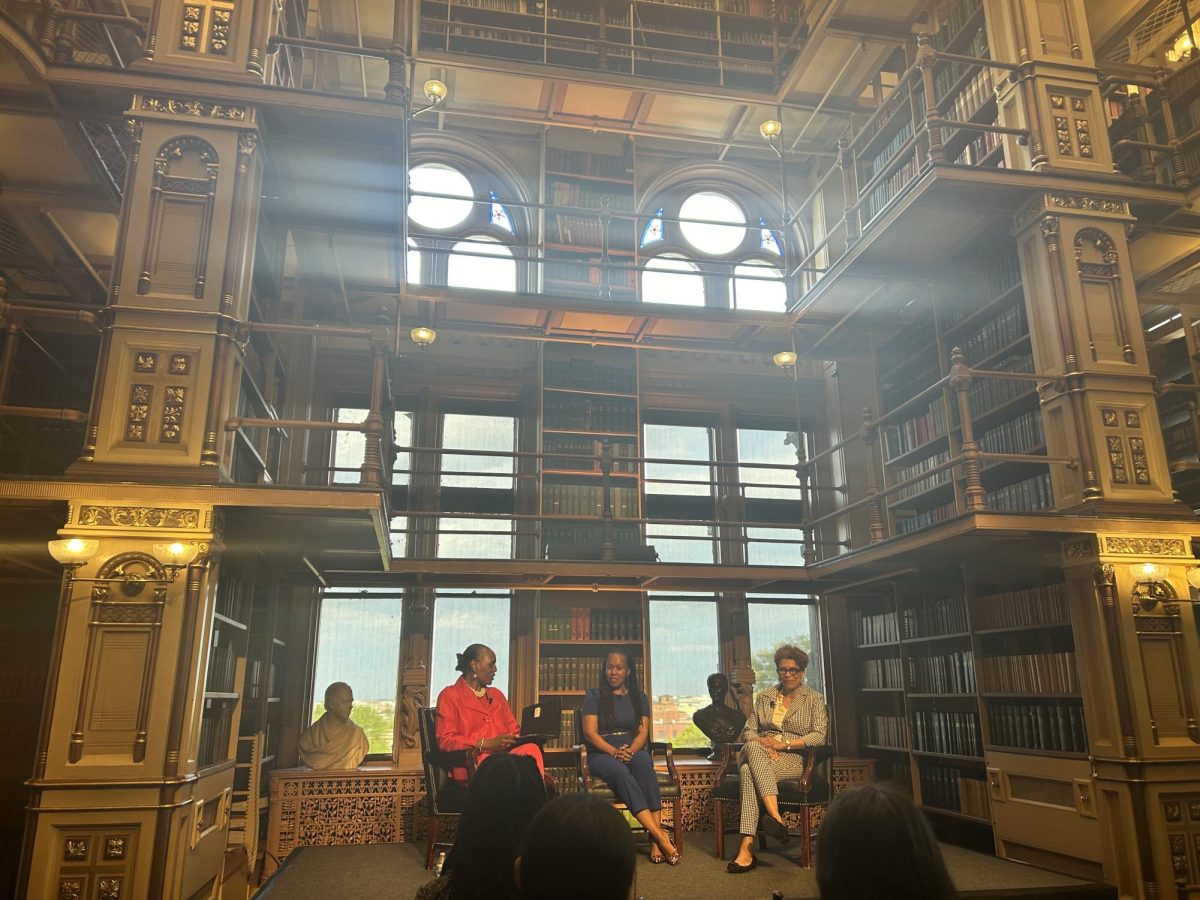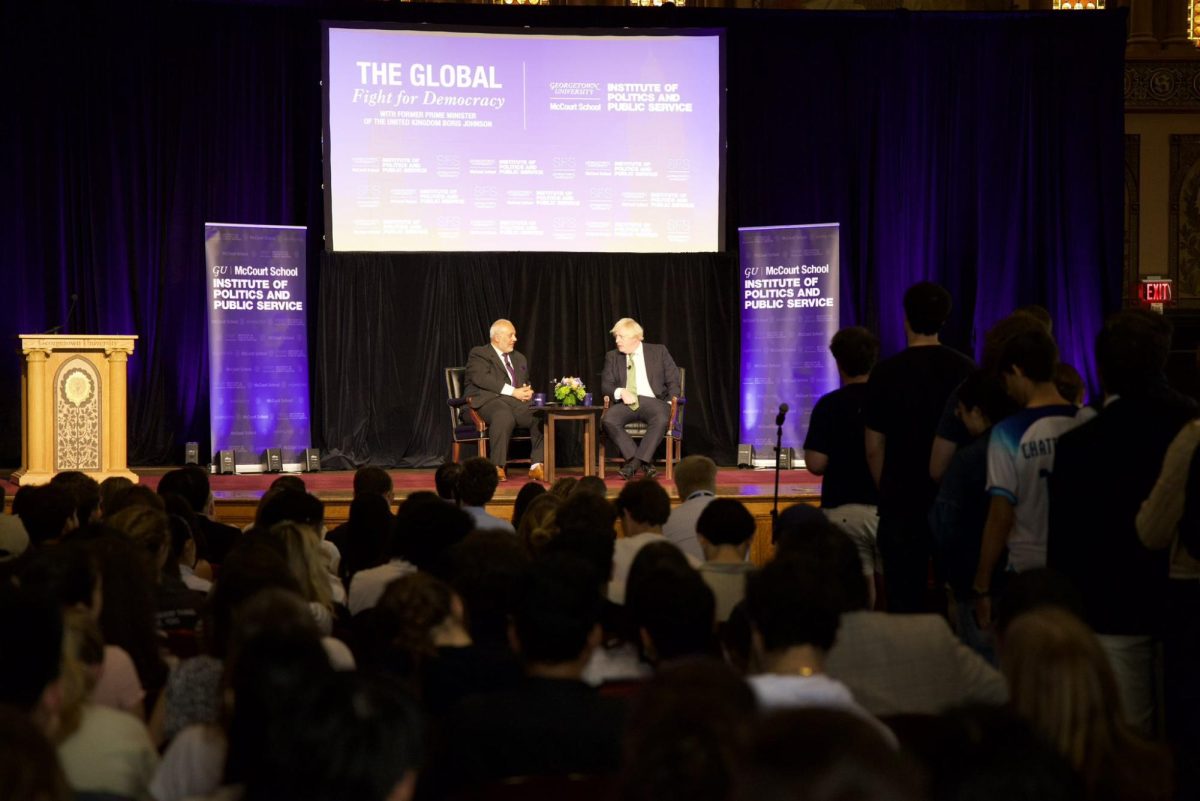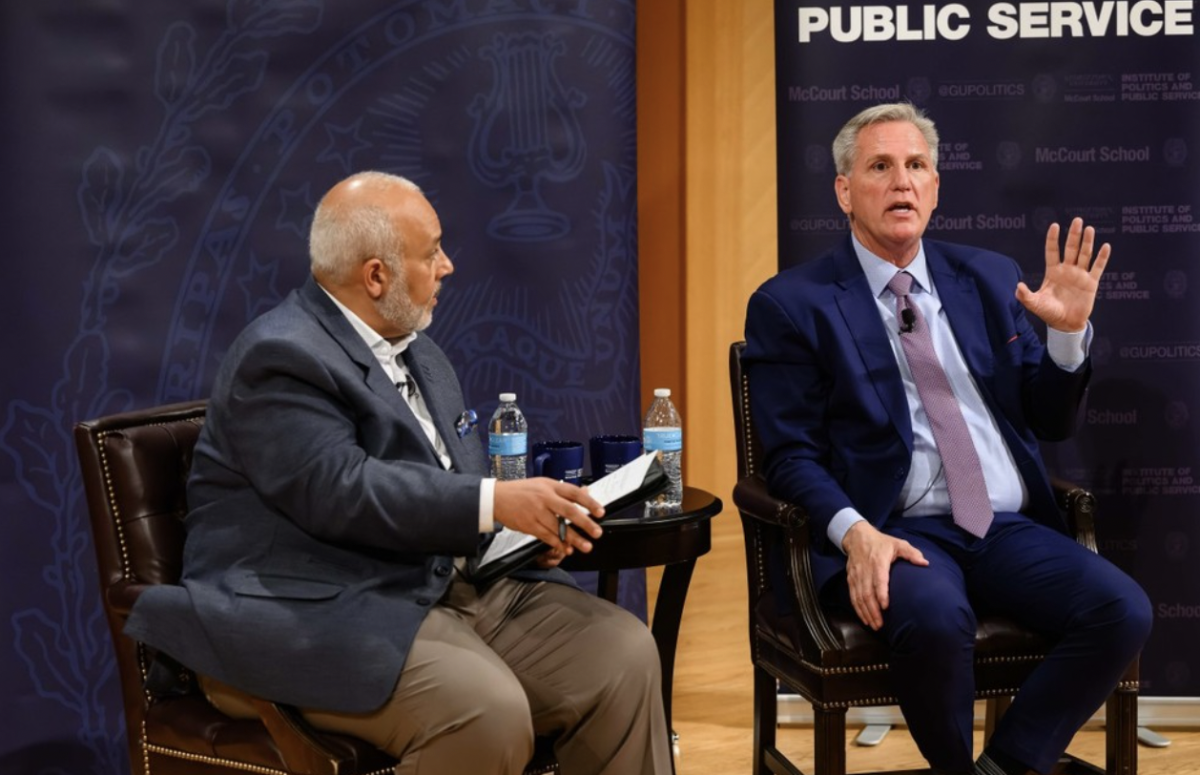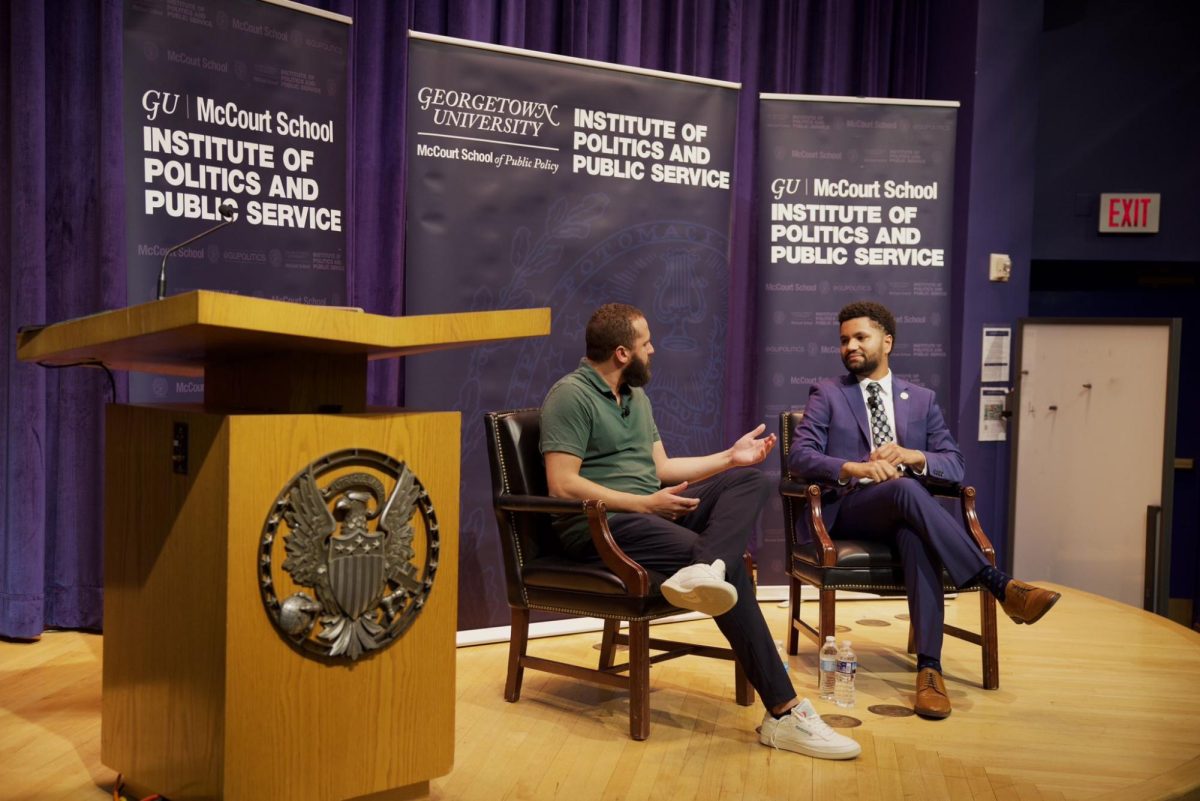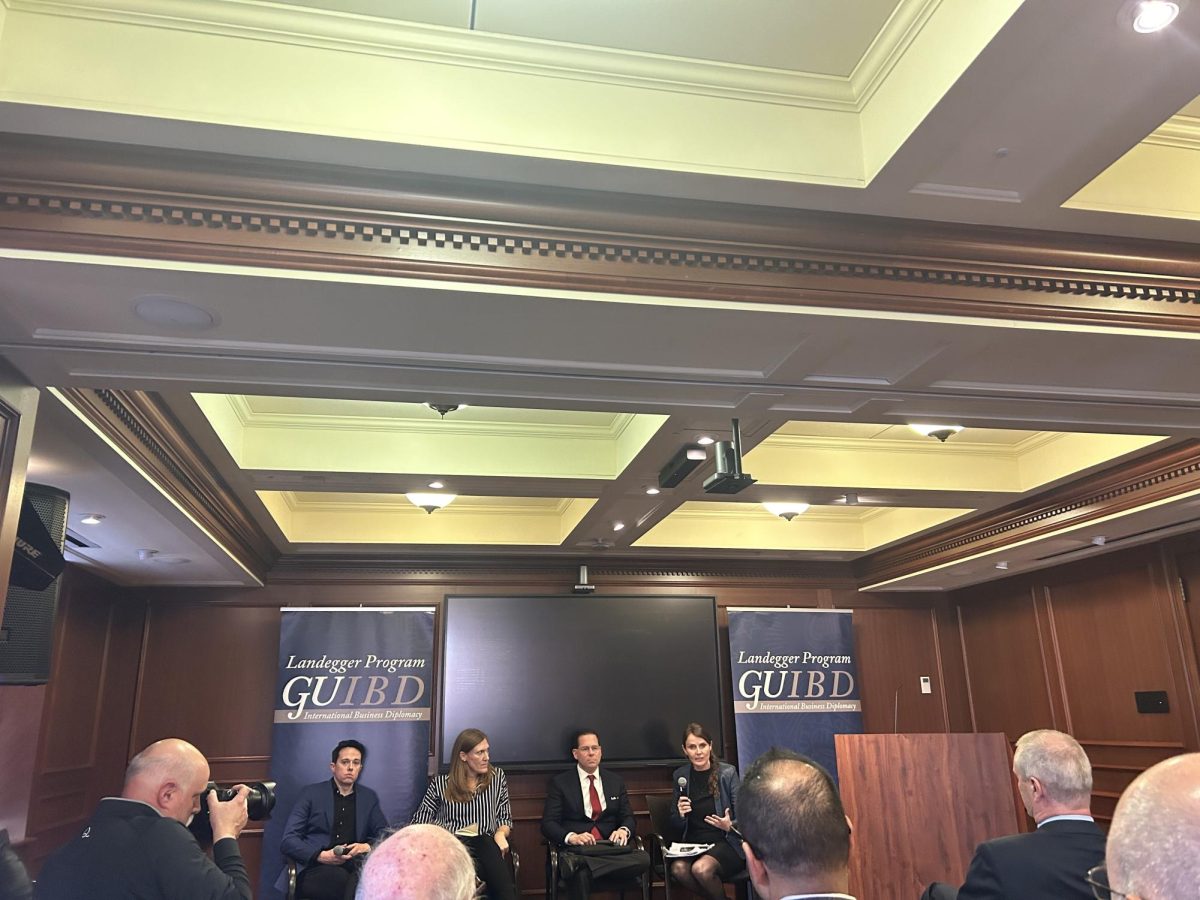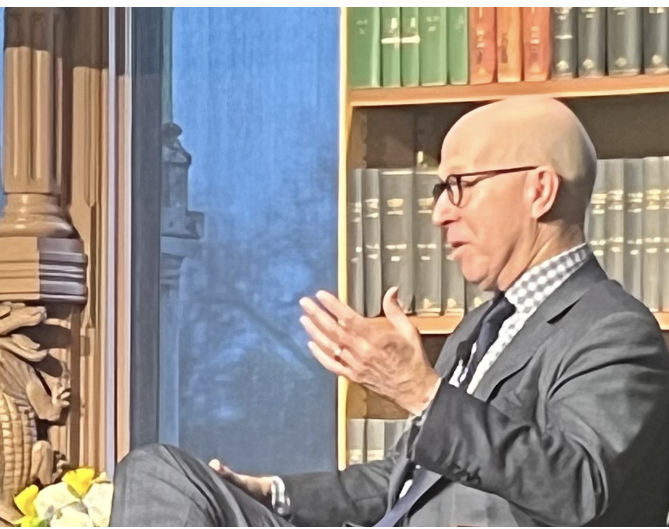A Georgetown University Law Center (GULC) professor delineated factors and potential solutions affecting migration and the status of migrants at the U.S.-Mexico border at an annual lecture Lauinger Library hosted April 11.
The yearly Gstalder Lecture, which focuses on pressing social issues in the United States, is held in honor of Ellen Catherine Gstalder (COL ’98), a Georgetown graduate who passed away from leukemia in 2004 and possessed a deep concern for others and social justice issues. Andrew Schoenholtz, a professor and co-director of Georgetown Law’s Center for Applied Legal Studies, delivered the 2024 lecture, “The Challenges of Protecting Refugees at the Border During Humanitarian Crises.”
Schoenholtz said refugees cross into the United States through the southern border for a variety of reasons, including fleeing oppressive or unsafe regimes.
“They’re fleeing an oppressive regime,” Schoenholtz said at the event. “Some are coming simply because it’s just not safe compared to their own countries.”
“We have a long history of something we all call the American dream. And for some people, that’s a draw, that’s what brings them here,” he added.
Schoenholtz said many of the migrants entering the United States at the southern border emigrate from the same few countries in Central America, establishing networks that lead to a steady stream of immigrants from those countries.
“There are particular nationalities who have been coming for many, many years. There’s a long connection, and once the connections in the migration world begin — and this is true for the history of international migration everywhere, not just the United States — once they begin, they don’t just stop like that. The connection’s been made,” he said.
The number of migrants crossing into the United States via its southern border with Mexico has soared since the COVID-19 pandemic, with an average of 150,000 to 200,000 migrants crossing the border per month in 2023. Migrants are primarily emigrating from Mexico, Venezuela and the “Northern Triangle” countries of El Salvador, Guatemala and Honduras.
Harriette Hemmasi, dean of Lauinger Library, said Schoenholtz’s lecture pressed attendees to consider how immigration and other humanitarian issues affect their own lives.
“His inspiring lecture challenged us to consider how those issues intersect with our lives and what each of us can do to help those in need,” Hemmasi wrote to The Hoya.

Discussing the humanized aspect of immigration, Schoenholtz said most parent immigrants come to the United States to protect their children from systemic violence in Central American countries.
“If they had young children, a 10 year old girl or an 11 year old boy, that was the age the gangs were recruiting in El Salvador, Honduras and Guatemala,” Schoenholtz said. “If you were the mother or father, you would probably be doing what those mothers and fathers did, which was try to bring them here, but you didn’t have any legal path to do that.”
Schoenholtz said any migrants coming from Central America often come to the United States because they do not feel safe in other countries they pass through, or because safer countries such as Costa Rica are overwhelmed by migrants’ mass arrival. He proposed several possible solutions for these aspects of the crisis, saying officials should work to address the root causes of migration and prevent migrants from reaching the southern border in such large numbers.
“Why don’t they stop along the way in other countries where they can reach safety? Because they’re not reaching safety,” Schoenholtz said.
“The United States and Canada — the high income countries in our region — should assist low and middle income countries in figuring out how to provide protection to humanitarian arrivals,” he added.
Schoenholtz said anti-immigrant sentiment in the United States has long existed, shifting between different groups of immigrants over time before American society and the immigrant groups adapt to each other.
“That’s always been the situation. Every group that came to the United States, from the beginning — the Irish were the first ones who were disliked. They were papists, they were never going to be able to be a part of this country. Then the Germans came. The Germans — how were they ever going to adopt to our form of government?” Schoenholtz said. “The problems of the ideas of being here a while — my feeling is we need to try harder.”
The U.S. population at large is harboring increasingly anti-immigrant sentiment, and in a January 2024 CBS/YouGov poll, nearly half of respondents said they agreed with former President Donald Trump’s remarks that immigrants were “poisoning the blood” of the country.
Schoenholtz said the influx of migrants the United States faces along its southern border is not a unique issue, but one unfolding across the globe.
“What’s happening here in our hemisphere, it’s happening around the world. It’s a global phenomenon. It’s not just here. There’s a large increasing number of displaced people globally. Women and children are particularly vulnerable,” Schoenholtz said. “Forced migration is very destabilizing for all involved.”








